AfDB President calls for development revitalisation
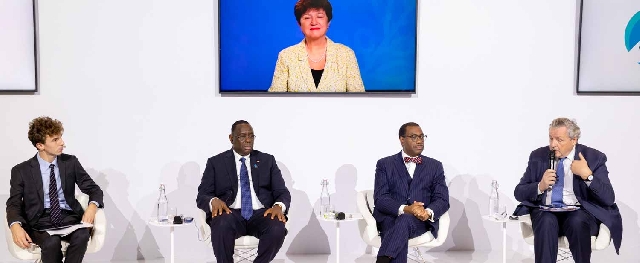 AfDB President in bow tie
AfDB President in bow tie
African Development Bank President Dr Akinwumi A. Adesina has called on the developed countries of the world to honor their financial commitments to developing countries as developing nations struggle to battle against climate change and the impact of the Covid-19 pandemic. He said Covid had drawn millions, particularly in Africa, into poverty.
Dr Adesina was speaking on Thursday at a panel at the fourth edition of the Paris Peace Forum, an event organized and championed by French President Emmanuel Macron to bring together global governance actors in an international and open space to interact, discuss and generate concrete solutions to challenges. The theme of this year’s forum is “Bridging the solidarity gap.”
Highlighting Africa’s financial needs amidst global inequity, Adesina said: “We are only looking for 485 billion dollars in the next three years to emerge from the current crisis. Meanwhile, the developed world has trillions of dollars. While the developed world is getting second and third Covid-19 booster shots, Africa is struggling to get one basic shot in people’s arms.” He underscored the importance of the International Monetary Fund’s $650 billion of special drawing rights (SDRs), which he said offered developing countries, and African nations in particular, additional resources as they cope with challenges of building back their economies from the Covid-19 pandemic.
The French President’s Special Envoy for Covid-related Initiatives in Africa, Ambassador Alain Le Roy, said France had set the example by providing 20% of its SDRs to countries most in need, and he encouraged other developed countries to follow the French lead. “The SDRs should also be allocated to multilateral development banks such as the African Development Bank to support Africa’s economic recovery,” he stressed.
Thanking IMF Managing Director Kristalina Georgieva for leading market stability in the middle of a global crisis, Adesina said: “SDRs are a good instrument to support countries with reserves in central banks but these funds can be better leveraged through multilateral development banks like the African Development Bank, which is a prescribed holder of SDRs. We are leverage machines and can leverage these resources for far more.” He added: “They can contribute effectively to the continent’s development needs as we ensure that education, energy, water, agriculture and health all grow exponentially, and as we recover 30 million lost jobs.”
The African Development Bank chief said it was a time to optimize the global financial architecture and for partners to work assertively towards a development revitalization in Africa. He told his International Monetary Fund counterpart, Kristalina Georgieva, that it would be desirable for the Fund to work side by side with multilateral development banks and support such development revitalization. He explained that this would deliver much needed resources to public development banks to help grow the various sectors back. Adesina said: “This will make sure the SDRs hit the ground most effectively. Then we can call the SDRs ‘Supporting Development Revitalization’ as they will then go beyond stabilizing central banks to reviving, revitalizing and stabilizing lives of real people.”
Speaking on the same panel, Senegalese President Macky Sall said SDRs were just one tool. He said many African economies were already fragile when Covid broke in 2020. He said: “We need further capacity to help purchase vaccines, and this is where the SDRs are useful. But we also need a new deal to enable people to have a new start.” This was largely consistent with the African Development Bank chief’s call for development revitalization. President Sall added: “In Africa, we have 31 million square kilometers where we must build our infrastructure. The 100 billion dollars a year that developed countries promised developing nations in climate finance, for example, is another source of finance for our development priorities.”
Addressing the critical issue of energy transition, Adesina said gas remained important for African economies as part of its energy transition. “As much as we talk about just energy transition, we must also talk about building just energy systems.” He emphasized that Africa was a continent where close to 600 million people lived with limited or sometimes no access to electricity, and thus had to make use of existing sources of energy like natural gas, which was in abundance on the continent. President Sall strongly supported this in his intervention, noting “to remove gas from Africa’s energy systems is to kill African economies.”
Adesina said that while gas must remain an important part of energy transmission in Africa, as much as 83% of the African Development Bank’s financing on energy generation was in renewables. “We must make sure that Africa is not disadvantaged in energy transitioning because Africa needs access, affordability, stability and security of energy,” the African Development Bank head said.
Source: Classfmonline.com
Trending Business
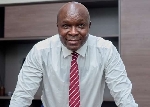
Ghana’s development hinges on political-business collaboration – Seidu Agongo
19:47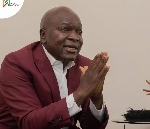
Agongo urges business leaders to mentor 300 youngsters each for Ghana’s future
21:40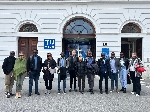
Jospong Group partner with Austria to boost waste-to-energy and skills training
16:49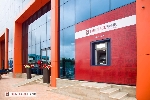
Bank loans: 35% interest rate senseless – Agongo says Heritage Bank would’ve charged 20% to force low rates
13:23
‘Ofori-Atta promised to do his best to protect my bank but still collapsed it’ – Agongo
10:53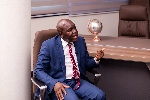
‘Vindictive,’ ‘backward-minded’ Akufo-Addo gov’t didn’t think the name ‘Agongo’ deserved owning a bank or prospering
10:31
PMMC transforms into GoldBod following passage of GoldBod Bill
16:30
Remittances, gold prog. anchor cedi against dollar – BoG
05:13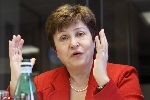
Ghana’s trade surplus meets IMF reserves expectation with US$6.9bn for 3 months
05:09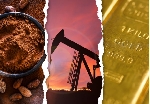
BoG: Gold crosses $3,000/ounce price, oil jumps 2.4%, cocoa tumbles 8.5%
05:07



